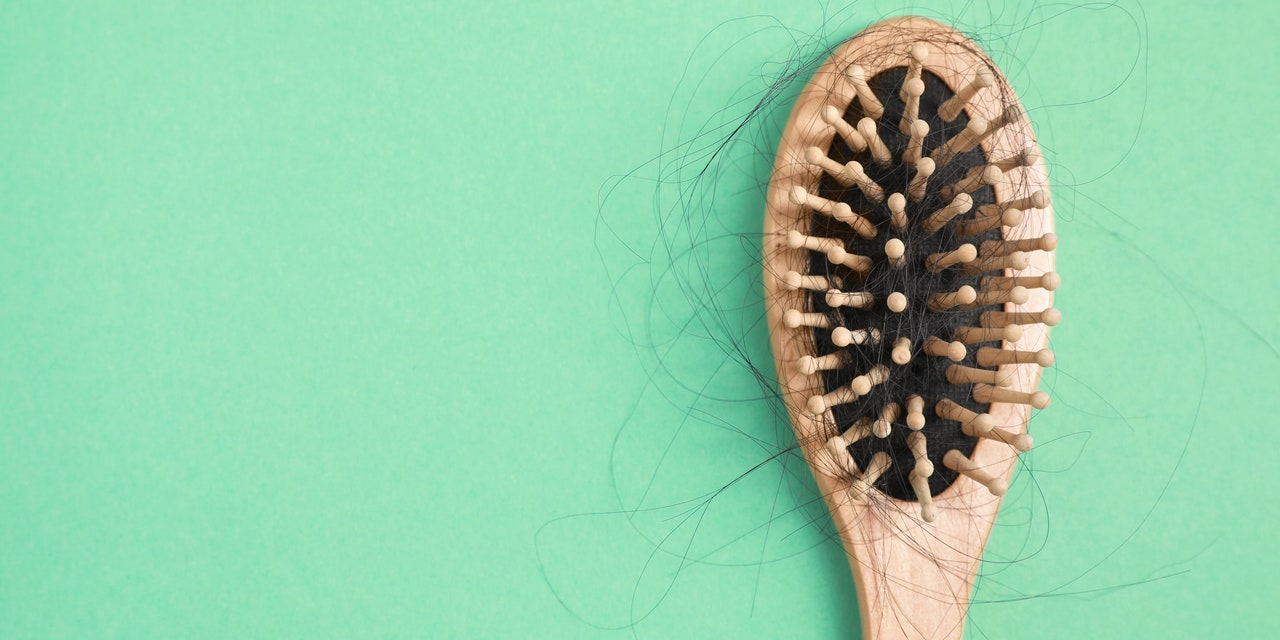A new treatment for severe alopecia got the Food and Drug Administration’s stamp of approval on June 23. The drug, which is called Litfulo (with the generic name ritlecitinib), is the first and only FDA-approved alopecia drug for kids 12 and up, in addition to adults.
Alopecia areata is a disorder in which the immune system attacks hair follicles, causing serious hair loss. This autoimmune disease often develops in young people, typically between their teens and thirties, according to the National Institutes of Health. It affects about 2% of the world’s population, and, in the U.S. alone, approximately 6.7 million people, or 1 in every 500 to 1,000, have alopecia areata. Until now, we haven’t had a drug for adolescents, and there was only one approved treatment option for adults with a severe form of the condition.
Many people with alopecia develop circular bald patches on their scalps, though it can also lead to hair loss on the arms, legs, eyebrows, and eyelashes—really, anywhere on the body, per the US National Library of Medicine.
This can have a massive effect on a person’s quality of life, especially when it causes them to feel self-conscious and embarrassed about their appearance. Adolescents, in particular, are often excluded, teased, and bullied by their peers due to their hair loss. People with alopecia commonly report feeling frustrated about the lack of treatment options. Many have resorted to taking off-label therapies, like topical steroids, with varying results, and which can come with potential side effects, including acne and glucose intolerance.
Litfulo may very well change that for at least some people with alopecia areata. According to Pfizer, the drug’s manufacturer, it’s specifically designed for severe cases—or those who’ve lost 50% of the hair on their scalps due to the disease. And clinical trials show that it can work well—really well. In Pfizer’s study, 718 people took the drug, administered via a pill, once a day at a 10-, 30-, or 50-milligram dose for 24 weeks, after previously taking either a 200-mg daily dose or a placebo pill for 24 weeks. After five and a half months, up to 31% of people who started with a minimum of 50% hair loss and received the 50-milligram dose (following a month of taking 200 mg a day, rather than the placebo) had improved to 20% hair loss, or 80% or more scalp coverage.
READ RELATED: Light and noise pollution ‘are neglected health hazards’, say peers
As the study went on through 48 weeks, the number of people experiencing significant hair regrowth continued to increase. Some people’s eyebrows and eyelashes grew back, and other participants who were nearly bald due to the disease grew full heads of hair.
Pfizer expects Litfulo will be available in a few weeks. A big thing to note: It’s far from cheap—a year’s supply is priced at $49,000—but the out-of-pocket cost will vary depending on the type of health insurance you may have, a Pfizer spokesperson tells SELF.
Here’s how the drug works, and why some dermatologists are saying it’s a quantum leap for people with alopecia areata.
Litfulo stimulates hair growth by quieting part of the immune system.
You have about 5 million hair follicles on your body, and more than 100,000 of them, on average, are located on your scalp. At any given time, 90% of the follicles on your head are growing while the other 10% are in a resting phase where new hair’s not sprouting, Anthony Oro, MD, PhD, the Eugene and Gloria Bauer Professor of Dermatology at Stanford Health Care, tells SELF. Throughout your life, your hair goes through this growth cycle every two to six years (which is why some people are able to grow their hair all the way down to their waist).




